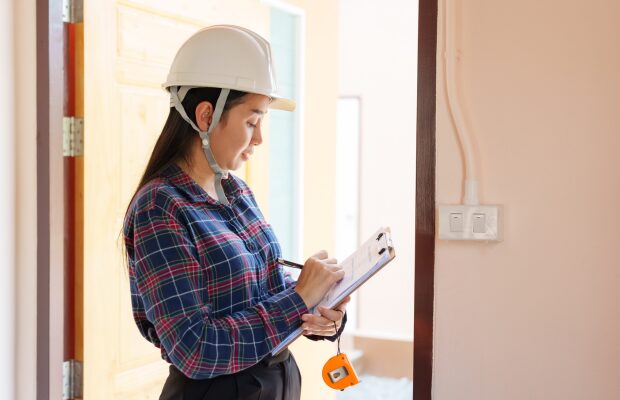With more of us now working from home, having a space that caters for home and work is becoming high on buyers’ must-have lists. However, if your work involves meeting face-to-face with clients and colleagues, a desk wedged in front of a bookcase on your landing just won’t cut it.
A live/work property may be a better option. Designed specifically as a commercial and residential space, this offers a complete solution to your work and home life. Here we’ll outline everything you need to know about live/work spaces.
What is a live/work space?
Originating from east London, live/work spaces took off in the 1990s. Traditionally, a live/work space is set inside a former industrial building, offering a wide, open-plan footprint that could be utilised however its inhabitant wished.
The main draw for buyers and tenants is the cost-effectiveness of this arrangement. In the last 30 years, as property prices in the capital have increased, live/work spaces are more often found in the outskirts of London too.
For help with finding a live/work space in your chosen area, register as a buyer today and our team will show you what’s currently available.
What are the benefits of a live/work space?
Flexible working
Striking the right balance between home and work is essential for our wellbeing. Traditionally, our working day would run from nine to five but as we all know, it never works out this way in practice.
The beauty of living where you work is you can be more flexible with your hours. Perhaps you’re more productive in the morning and prefer to get an early start on things? Or maybe you’re a night owl who prefers the peace and quiet of evenings? Either way, a live/work space can cater to this need.
Saves money
It stands to reason that by combining your home and work in a single place, you’ll save money. If you’re looking to buy in London, where properties are more expensive than the national average, this money could be put to good use, finding you a usable space in the London postcode of your dreams.
Eliminates your commute
Although the average commute time in Britain is 27 minutes, anyone who has ever been on the tube in rush hour will know that it feels a lot longer. By living where you work (and vice versa) you’re effectively eliminating your commute (unless you count the time it takes to go from your bed to your desk).
Can help kickstart a new business
A live/work space is ideal if your profession takes up a lot of space – for instance, if you’re a dancer, artist, musician, or tailor. However, it’s also great for kickstarting a new business. Afterall, you won’t be paying for office space or any extra commuting costs, all of which can be put towards your property budget.
What you should consider about live/work spaces
Business rates and tax
Opting for a live/work space may allow you to write off certain expenses – such as power and water – which will reduce the amount of business tax you pay. That said, it’s important to be clear on the living and working areas of your space as you’ll need to prove this is used by the ‘work’ part.
This is important for council tax too since you’ll only pay tax on the living part of your home. Bear in mind, any savings you make with this may be taken up by expenses associated with business rates, which are typically higher than council tax. You’ll usually incur charges associated with this if the work portion of your property exceeds 50% of its total size.
There are exceptions, however. If a live/work space is classified as ‘undesignated’ in the lease or as a ‘residence’ by the council, you’ll be exempt from paying business rates.
Location
Obviously, location will play a huge role in the cost-effectiveness of your venture. Some parts of London – including east London, the birthplace of live/work spaces – will be expensive to buy in. However, there are still some up-and-coming areas in and around the capital that are worth a look.
Building, contents and business insurance
Before you finalise your building, contents and business insurance, check that you’ve told your insurer that this will be your main place of work as well as your home. This is especially important if clients or colleagues are likely to visit your live/work space, as it can affect the premiums that you pay.
Planning consent
It’s worth bearing in mind that planning permission is usually required ahead of developing a live/work space. So, if you intend to convert an existing residential or commercial property, you should contact your local authority first. If you’re buying a property that’s being marketed as a live/work space, this will have already been done for you.
When applying for planning consent, you should identify the merits of your proposed changes and why this would be a sustainable development. Speak to your local planning office for more information.
Maintaining a healthy work/life balance
Perhaps most important of all is striking that all-important balance between work and home life. This is tricky at the best of times and won’t be made any easier by the presence of your desk – and everything you associate with it – in the same room as your bed.
Clever room dividers, such as open-back shelving units can create a nifty demarcation between your work and home space.
For help with buying or selling a live/work space, get in touch with your local branch.








